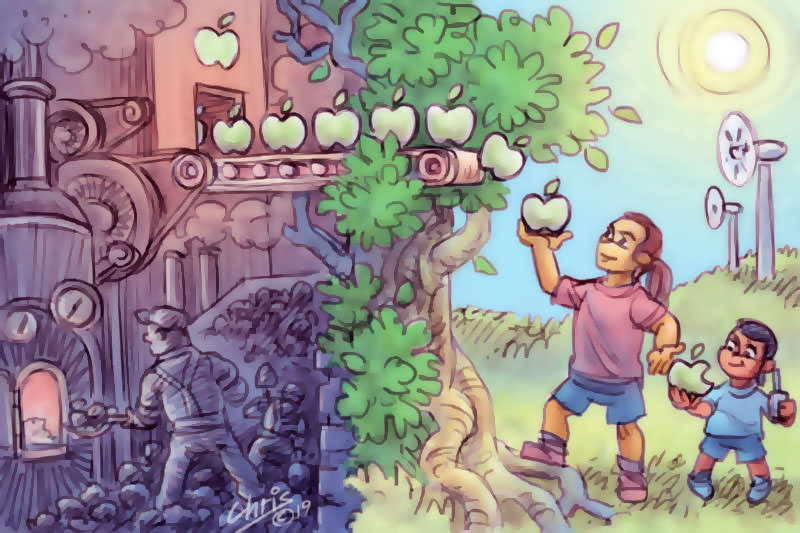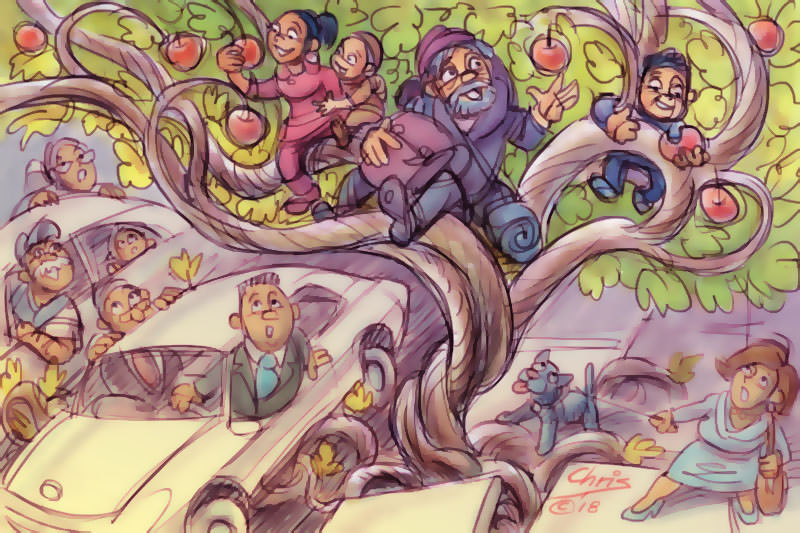Keywords: Green Consumerism
-

ENVIRONMENT
- Jacinta Bowler
- 16 September 2019
7 Comments
Whole industries have sprung up dedicated to help alleviate climate stress. Tote bags. Metal straws. Zara has announced 100 per cent of its fabrics will be sustainable by 2025 while Apple has said it plans to eventually stop mining. All of this looks great, but it doesn't help the underlying issue: We are still buying way too much stuff.
READ MORE 
-

ENVIRONMENT
- Bronwyn Lay
- 16 February 2018
4 Comments
A holistic, culture-sensitive ecological justice has its roots in the feelings, actions and awareness of each person and their relationships: human and otherwise. Organisations, a manifestation of our collective culture, must engage with the ecological challenges and not leave it to the individual, privatised space.
READ MORE 
-

ENVIRONMENT
- Paul Fyfe
- 11 December 2015
2 Comments
Twenty years ago I was hopeful that countries would take strong and sensible action to address climate change, just as we had in 1987 when we faced the major depletion of the ozone layer. The following years slowly erased this hope. The Church did not do enough to stem disappointment, or to affirm that 'stewardship' alone was not going to provide sufficient grounds for the needed changes. By 2010 I was resigned to devastation. But Pope Francis has provided me with a ray of hope.
READ MORE 
-

AUSTRALIA
- Frank Brennan
- 23 October 2015
4 Comments
Francis knows there are all sorts of issues inside and outside the Church where for too long people with power have tried to keep the lid on, in the hope that the problems and complexities will go away, often by parodying those who see the problems or complexities as small 'l' liberals or cafeteria Catholics. He delights in being joyful and troubled while contemplating big problems, calling people of good will to the table of deliberation reminding them of the kernel of the Christian gospels. He has the faith and hope needed to lift the lid without fear and without knowing the answers prior to the dialogue occurring.
READ MORE
-

- Frank Brennan
- 06 August 2015
3 Comments
Pope Francis is not the first pope to address a social encyclical to everyone. But in comparison with his predecessors, Francis has been more inclusive in the process of writing the encyclical and in the final content of the document. He quotes from 17 different conferences of Catholic bishops. He is at pains to indicate that he is collaborative and that he takes the principle of subsidiarity very seriously. Being the final redactor of the text, he has felt free to interpolate some very folksy advice from time to time. He has also taken the liberty of inserting some very blunt, evocative images of environmental and economic devastation.
READ MORE
-

AUSTRALIA
- Michael Walker
- 28 March 2011
8 Comments
Many people have been concerned about the effect of Coles' $1 milk on 'little' producers. They should look closer. Those producers are actually large companies, quite capable of fending for themselves, who have been putting the squeeze on farmers for decades.
READ MORE 
-

MARGARET DOOLEY AWARD
- Susie Byers
- 20 October 2010
2 Comments
Harry Wetnose the Bigeye Tuna will probably never adorn any T-shirts. Nevertheless, the endangered Bigeye Tuna is in big trouble and could do with some help. The way we relate to fish raises some important questions about what it is to be a responsible person in the world.
READ MORE
-

ARTS AND CULTURE
- Suzanne Hemming
- 10 March 2010
9 Comments
The Singaporeans have heavy fines for
antisocial behaviour such as spitting and swearing. It works for them,
and creates a pleasant, safe environment for tourists. But the lack
of seats suggests something more: a form of social control.
READ MORE 
-

ENVIRONMENT
- Neil Ormerod
- 08 January 2010
3 Comments
Many conservative
Catholics are sceptical about global warming. For them
environmentalism is the new communism. This echoes the paranoia
of the '50s and '60s are clear, when anyone with an interest in social
justice was suspect. September 2009
READ MORE 
-

ENVIRONMENT
- Neil Ormerod
- 04 September 2009
20 Comments
Many conservative
Catholics are sceptical about global warming. For them
environmentalism is the new communism. This echoes the paranoia
of the '50s and '60s are clear, when anyone with an interest in social
justice was suspect.
READ MORE 
-

AUSTRALIA
- Tony Kevin
- 05 November 2008
13 Comments
After
America's worst president, Obama may prove its greatest.
Australians will have reason to celebrate his likely victory, although Obama has no
reason to be impressed by Australia.
READ MORE 
-

ARTS AND CULTURE
It's time to scrutinise the rapid rise of the 'shopping green' movement in the US and elsewhere, and assess the sum total of its effect on the environment. By buying bottled water, organic food, or sunscreen, consumers are arguably shutting the healthy individual in and the threatening world out.
READ MORE 